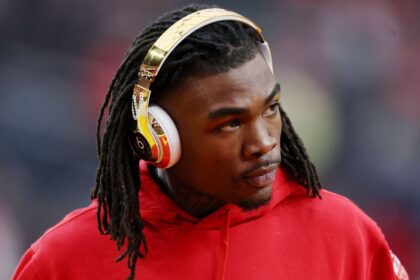Tragedy in New York: An Attack with Deep Roots
Las Vegas, Nevada – Shane Tamura, the man responsible for the shooting that took the lives of four people and ended his own life in an office building in Manhattan, which houses the NFL headquarters, had sought medical help for years to treat severe headaches. A source close to the family revealed to Alofoke Deportes details about Tamura’s life and his health problems. Tamura, 27, a casino worker in Las Vegas, underwent multiple medical treatments, including injections in the back of the head and annual MRI exams, in an attempt to diagnose and alleviate the pain. The headaches began during his time in high school football and persisted into adulthood. Initially, he turned to common painkillers, but upon moving to Las Vegas in 2019, he sought more specialized medical help. Doctors prescribed various medications to find an effective treatment, according to the source.The shooting resulted in the death of four people, including an off-duty New York police officer, and left an NFL employee seriously injured. Tamura’s family is in mourning, especially for the innocent lives lost. After the shooting, while funerals were being held in New York and authorities in Las Vegas were conducting searches, details about Tamura’s life were revealed: his football career at two high schools in Los Angeles, his mental health history, his work at a private security company, and his employment at a Las Vegas casino. Tamura started playing American football at age 6 and continued through high school. Friends who knew him a decade ago remember him as a talented runner. Due to his size, he did not consider playing in the NFL. Investigators believe Tamura was trying to get to NFL headquarters, but took the wrong elevator. A note found in his wallet suggested he had a complaint against the NFL related to possible chronic traumatic encephalopathy (CTE). In the note, he apologized and asked that his brain be studied for CTE. During his time in Nevada, Tamura received treatment for depression and was hospitalized twice for mental health issues. The source did not recall Tamura expressing anger towards the NFL, but did recall him talking about the need for better equipment and greater safety for young players. At least once, Tamura mentioned that he believed he had CTE, but knew that it could only be diagnosed posthumously. Experts have warned about the need to establish direct connections between the shooting and the disease. CTE is a degenerative brain disease that can only be diagnosed after death and is related to concussions and other repeated head traumas, common in contact sports like American football. It could take weeks to determine if Tamura suffered from CTE. Tamura sometimes worked the night shift at the Horseshoe Casino in Las Vegas and returned home to sleep, using ice packs on his forehead due to headaches. Head injections sometimes relieved the pain, but it persisted. Doctors sometimes treat severe headaches with nerve blocks, injecting steroids and painkillers near the base of the skull. The hope was that medical research on Tamura’s brain would reveal the cause of his suffering and help find answers.“As it got worse, it was like, ‘OK, now I need help from the doctors’,” the source commented.
Source close to the family
The weekend before the shooting, Tamura drove from Las Vegas to New York, arriving on Monday. He parked a BMW in a double row and, around 6:30 p.m. ET, entered the building with an assault rifle. Once in the lobby, he shot an off-duty police officer and a woman seeking shelter. Then, he shot a second security guard and another man before taking the elevator. Investigators believe he was trying to reach the NFL offices, but he reached the 33rd floor, where he shot a woman before committing suicide.
The investment firm Blackstone confirmed that one of its employees, real estate executive Wesley LePatner, was among those who died. Julia Hyman, who worked at Rudin Management, and security officer Aland Etienne also died. In a memo sent to NFL employees, Commissioner Roger Goodell expressed his condolences and called the shooting “an attack on humanity.” Elijah McCormick, a childhood friend of Tamura, regretted not being able to speak with him before the incident. They both met at the age of 8 and played American football together. Other high school teammates also expressed their sadness. Tamura and his parents, Terence and Michelle, lived in Canyon Country. His father was an officer with the Los Angeles Police Department. Tamura played several sports in school, including American football, basketball, and track and field. At Golden Valley, he was known for his speed. In his senior year, Tamura played for Granada Hills Charter School. In Nevada, Tamura worked primarily in security and surveillance. He applied for a license that was provisionally issued in December 2019 and worked for Securitas USA from February 2020 to December 2021. In September 2023, Tamura was arrested for resisting identification at the Red Rock Resort, but was not charged. Subsequently, he got a surveillance job at the Horseshoe Casino. A surveillance employee from another casino commented that surveillance work in casinos can be isolating and negatively affect mental health. Rick Ackley, Tamura’s supervisor, sold him the gun used in the shooting, complying with state and federal laws. Ackley also sold him the BMW. La Jolla Classics is a quiet subdivision near Las Vegas, where Tamura’s parents moved in 2021. Tamura did not live with them. Investigators found two notes: one at the shooting scene and another in a Las Vegas apartment. In them, he apologized and asked that they study his brain. A former teammate, Tobenna Okunna, commented that the notes reminded him of his friend. After the shooting, KPMG, Blackstone, and the NFL temporarily closed their offices.









